Macaroni micro:bit
Macaroni About 40 km north-west of the South Orkney Islands
18th Feburary 2016
By sending sound waves vertically downwards from the
ship, scientists on board can see the outline of the
krill swarms on their instruments.
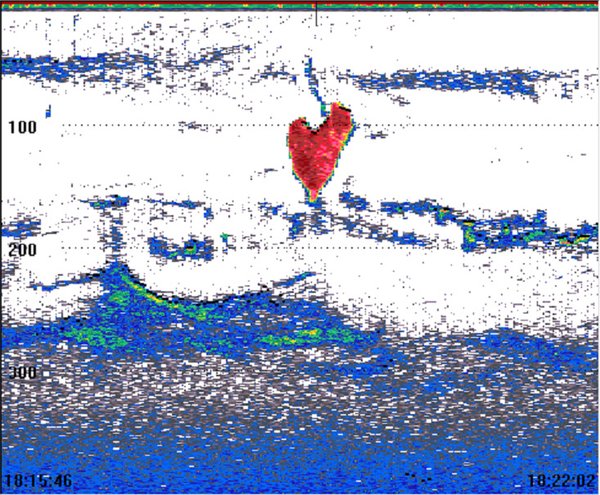
Heart-shaped krill swarm with a penguin diving down from the surface (Image:
Rokas Kubilius; Data: EK60 data collected on cruise JR15004 on board RRS James
Clark Ross).
Unfortunately, they are not able to see individual krill, but by catching a small sample from a swarm, they are able to better understand what the Antarctic krill population is like in this area.
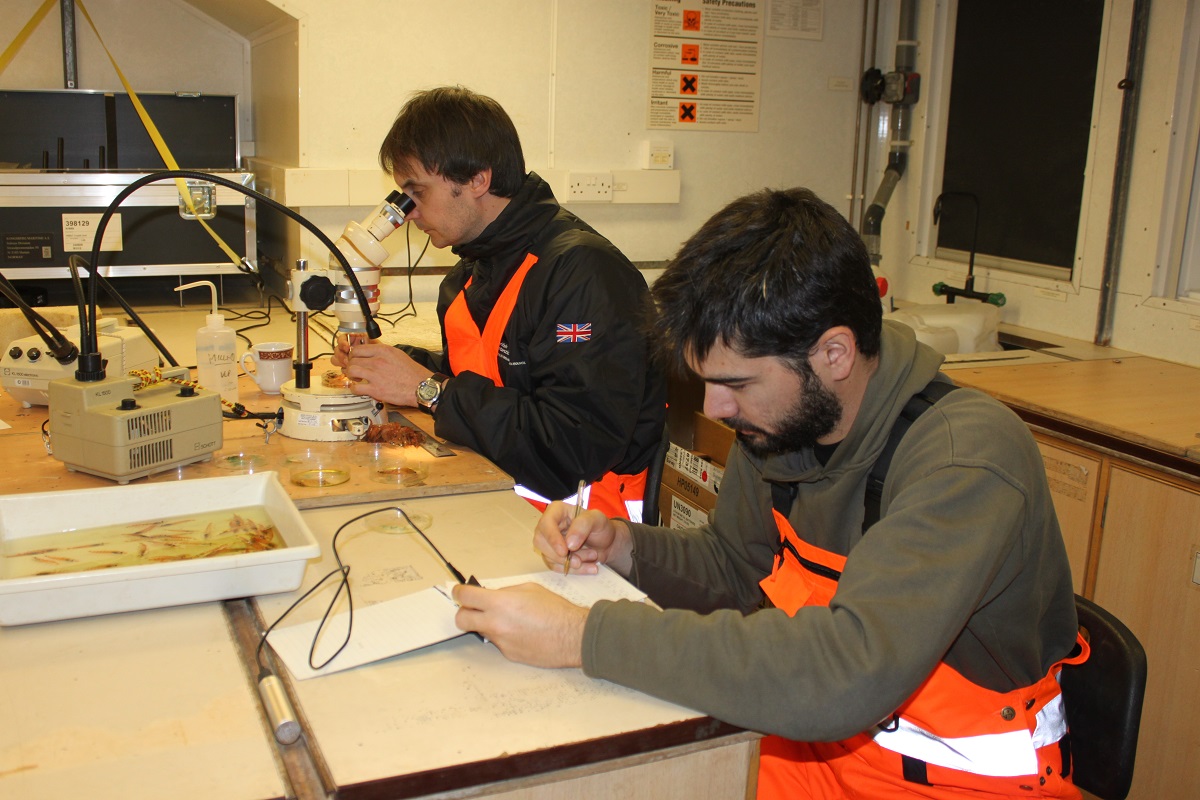
Ryan Saunders and José Seco measuring and counting Antarctic Krill, Euphausia
superbawith BBC Micro:bit, Macaroni (Photo: Jenny Thomas).
So what exactly were Ryan and Jose doing? Ryan was looking down a microscope to study the Antarctic Krill in more detail. By looking at the underside of each animal, he was able to tell if it was male or female. Nobody knows how to determine how old krill are: instead we can see what stage they are at in their development. Finally, with José's help, Ryan was measuring the Antarctic Krill (they are roughly the length of your little finger).
And where did I come in? José was using me (see the script that I was interpreting) to count the number of Antarctic Krill that they had sampled in each age group. Every time he pressed the button, the LED moved along one notch. This means he didn't have to keep track in his head of how many had been measured!!
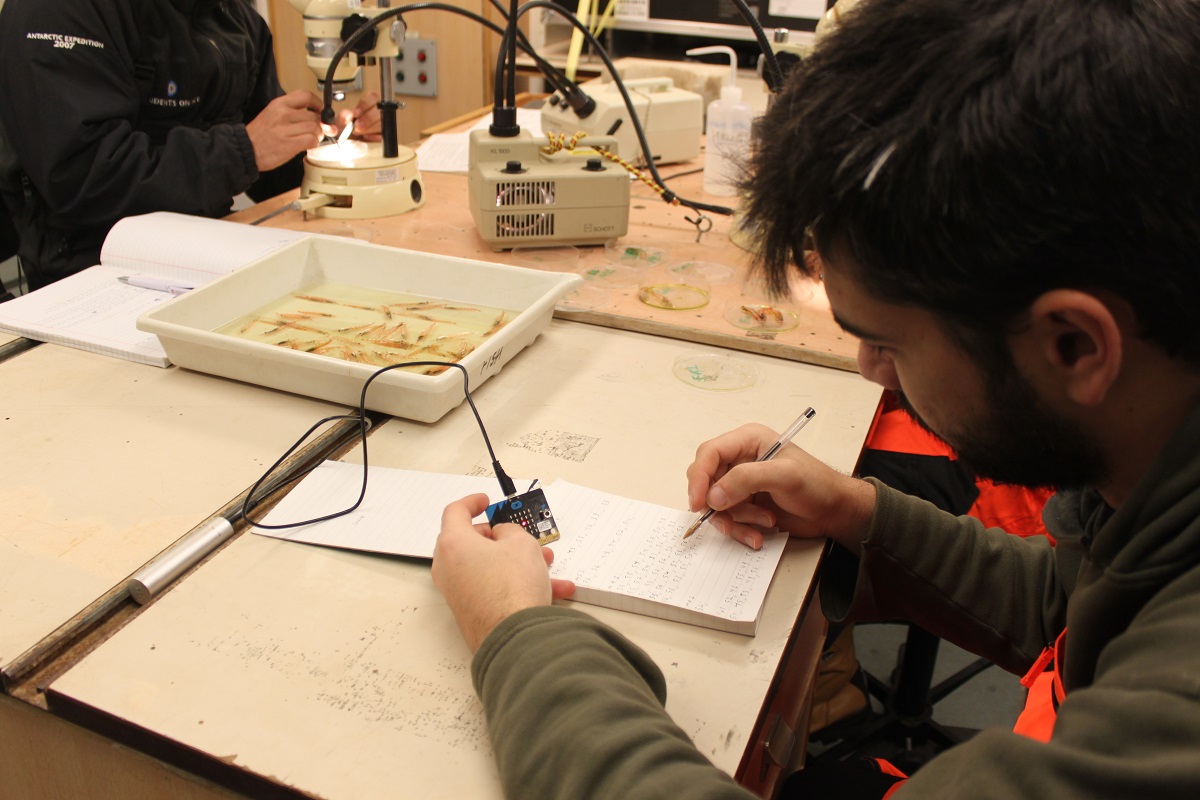
José Seco using buttons on BBC Micro:bit, Macaroni,
to count Antarctic Krill, Euphausia superba(Photo:
Jenny Thomas).
On a slightly different note, I am named after Macaroni Penguins, which breed on sub-Antarctic islands, such as South Georgia. My namesake penguins really like to eat Antarctic Krill too, but we haven't seen any on this trip.
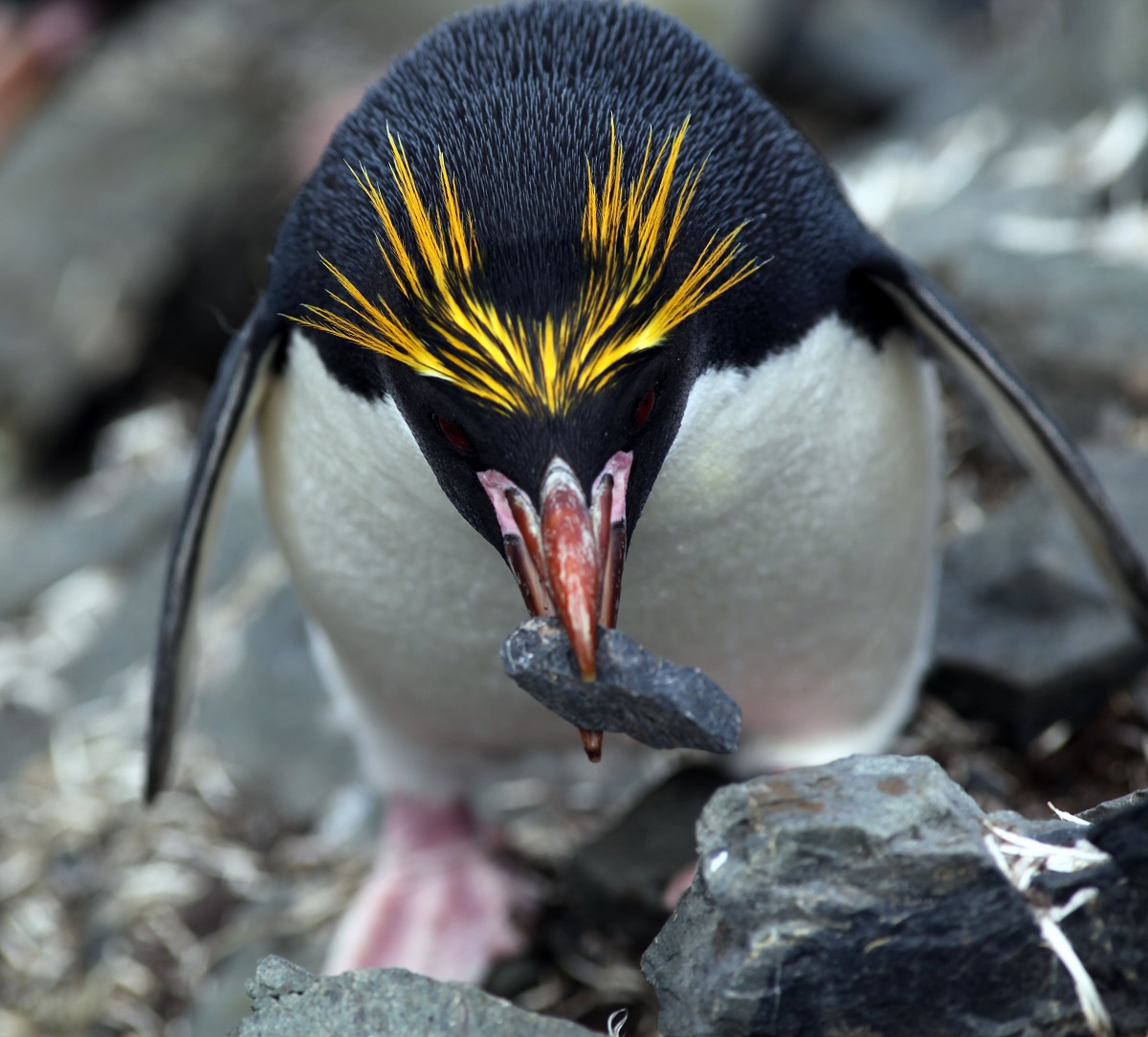
Macaroni Penguin, /Eudyptes chrysolophus/ (Photo: José Xavier).
Macaroni 62 degrees south of the equator, 47 west
28th January 2016
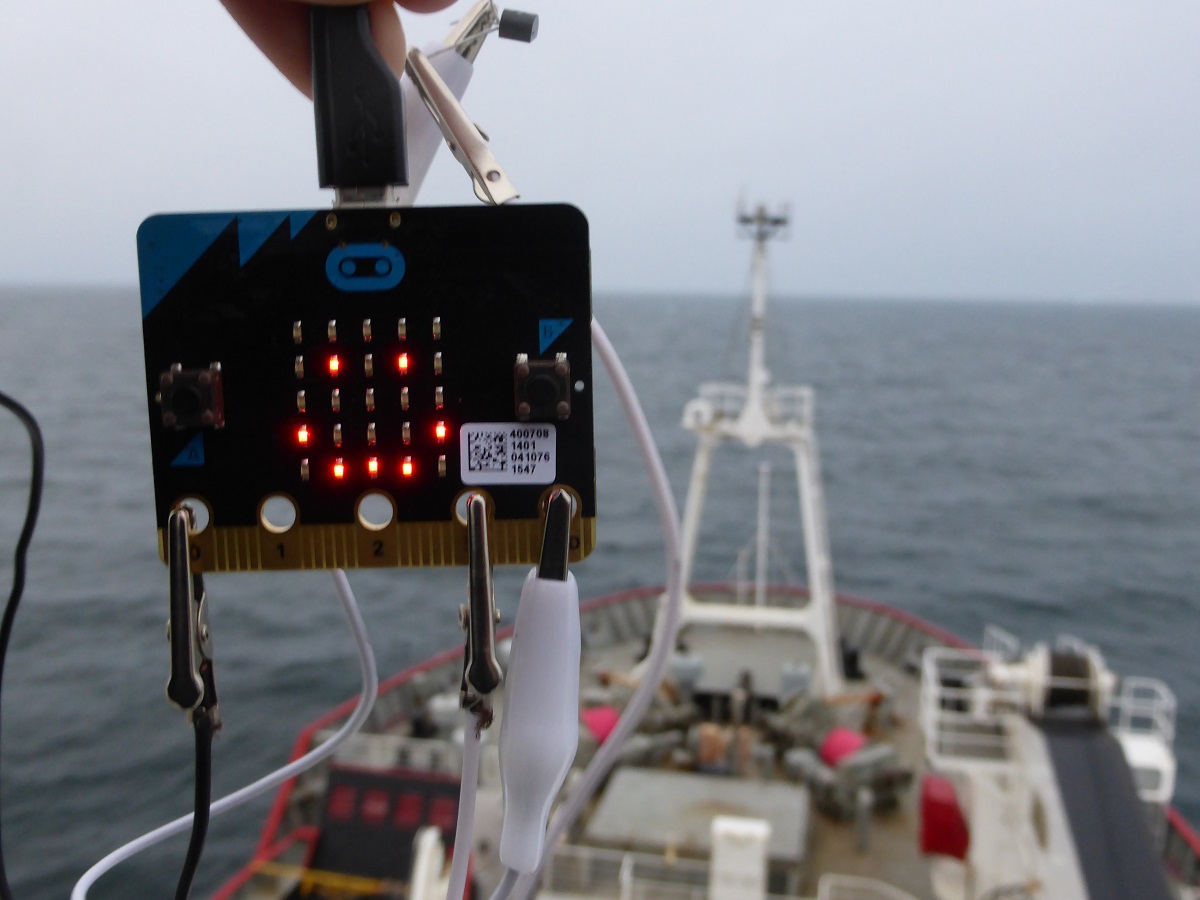
Macaroni Falkand Islands, British Overseas Territory
15th January 2016
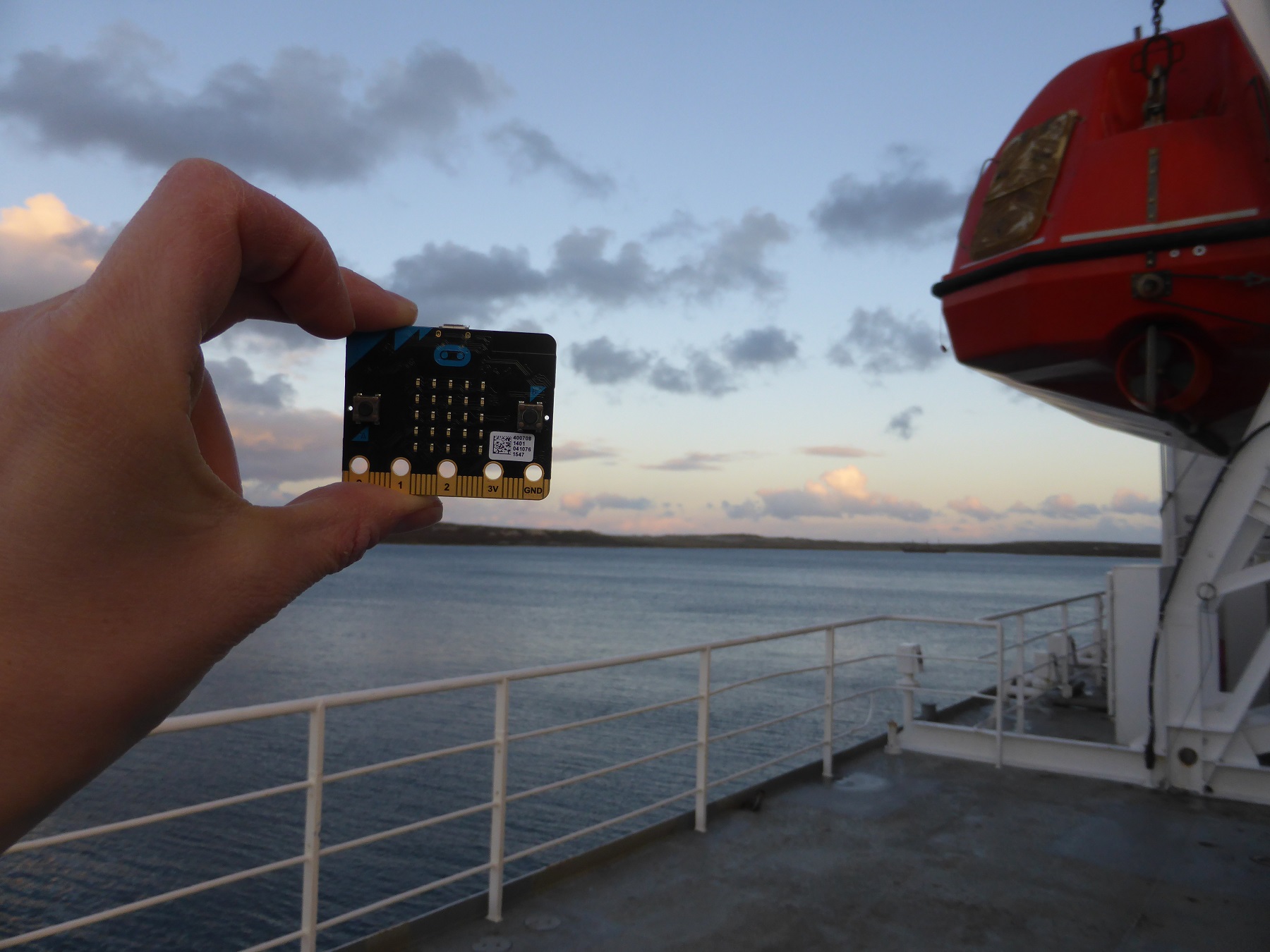
Macaroni Cambridge, England
Tuesday, 12th January 2016
George K from Mendeley found reading the numbers a bit difficult. Then he prepared a new number representation: I can now show 2 numbers at the same time without scrolling!
For example, you can see the number 12 and each digit only uses 2 columns. With my 5 columns I can show 2 numbers without scrolling:
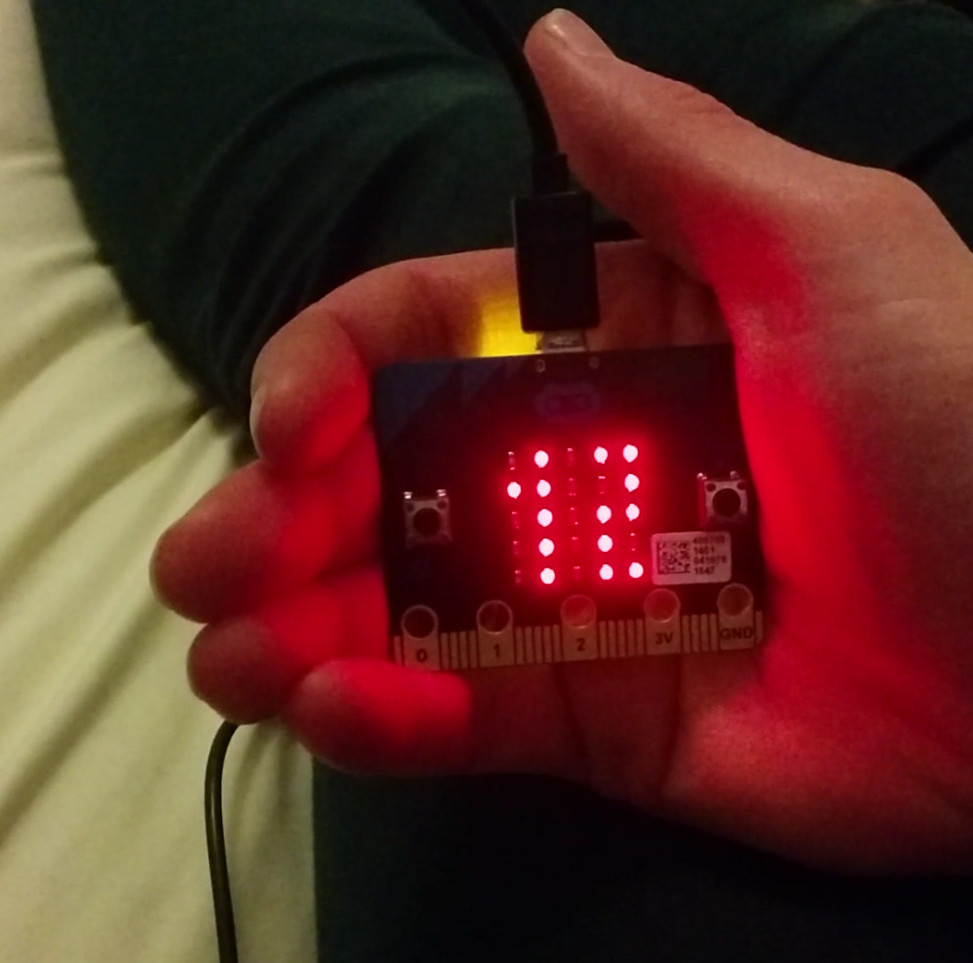
And this is some code for testing the George K numbers. I like them!
Macaroni Mendeley Office, London, England
Monday, 11th January 2016
I was taken to the Mendeley office to verify that I could measure the temperature... of course I could! I'm very precise!
See me on the photo next to a PyCon UK rubber duck!
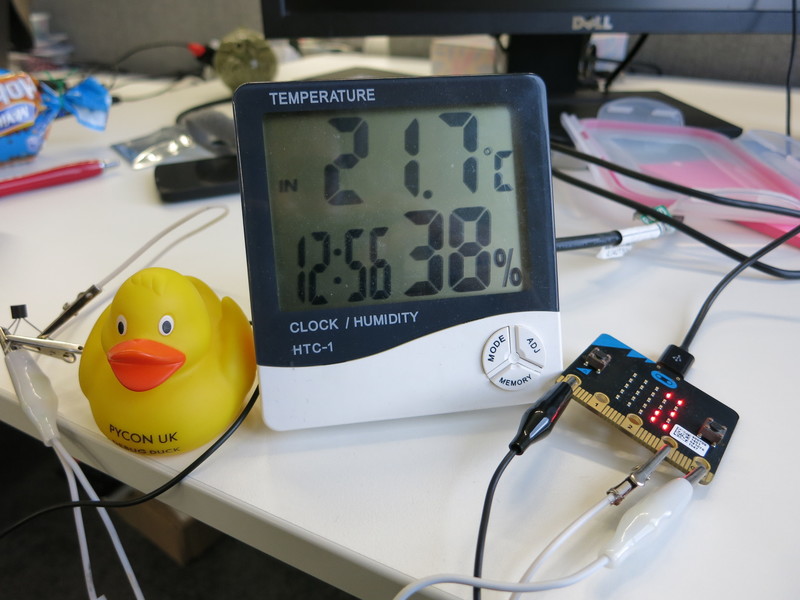
Macaroni North London, England
Sunday, 10th January 2016
Whilst measuring the temperature, some penguins and a special snowman that live in north London came to say hi and pass good wishes to their friends from the Antarctic.
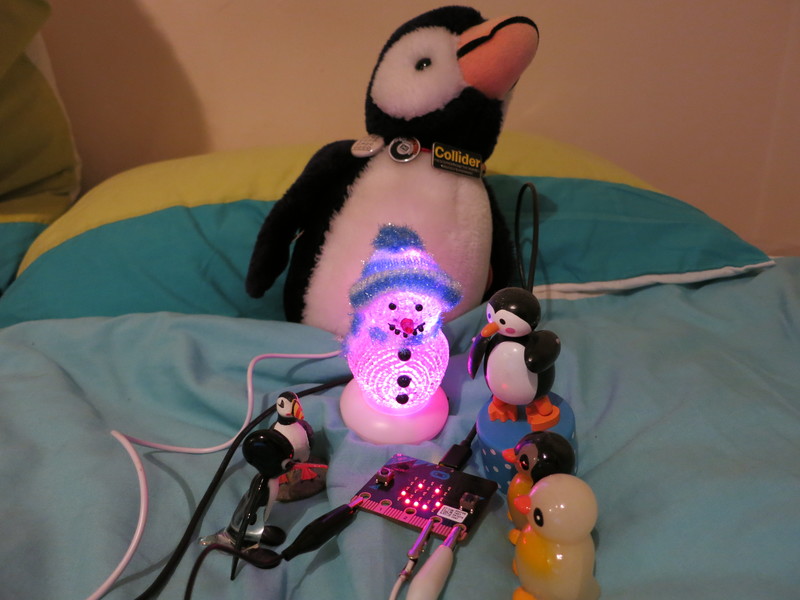
Funnily enough we had some problems measuring the temperature: not because of me but they connected to me a transistor instead of a thermoresistor! So I couldn't give any good results for a while. Luckily the sorted it out!
Macaroni The Chilterns, England
Saturday, 9th January 2016
Wow, they took me to the Chilterns! It was muddy but luckily I had a piggyback. I learnt a few things that will be useful to keep the researchers entertained whilst on a ship for six weeks!
For example, I'm going to help the researchers to cast their votes (if they need to cast votes... let's see!). I can also measure the temperature (I don't want anyone to be too cold!) and, if they need to, they can play heads or tails with me. I'm sure that I'll learn more things.
You can see me near the fireplace... getting ready for the the Antarctic!
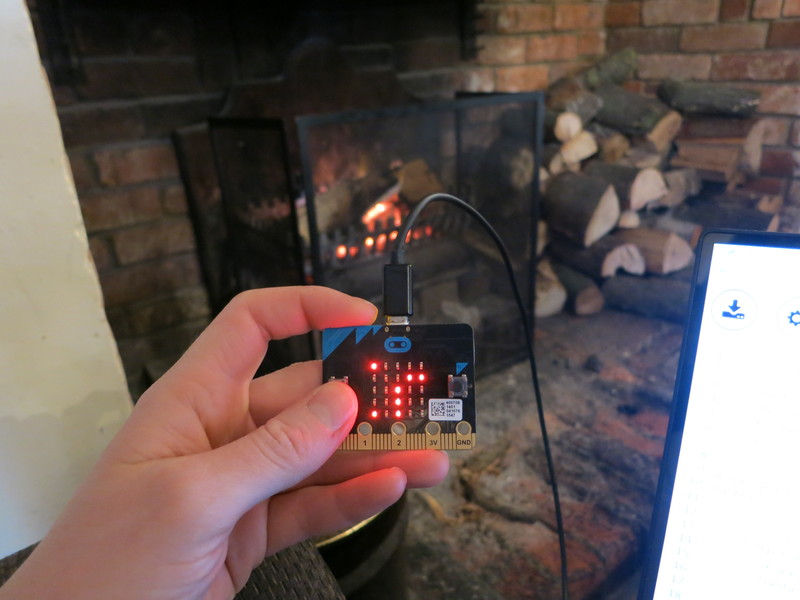
Macaroni London Python Code Dojo
Thursday, 7th January 2016
Hi, I'm Macaroni the BBC micro:bit. I was given by Nicholas to Jen at January's London Python Code Dojo. Then I was told that in one week I would be going to the Antarctic! I'm going to learn how to do things with MicroPython to help Jen do her research as part of the British Antarctic Survey.
More updates soon... I may be some time.